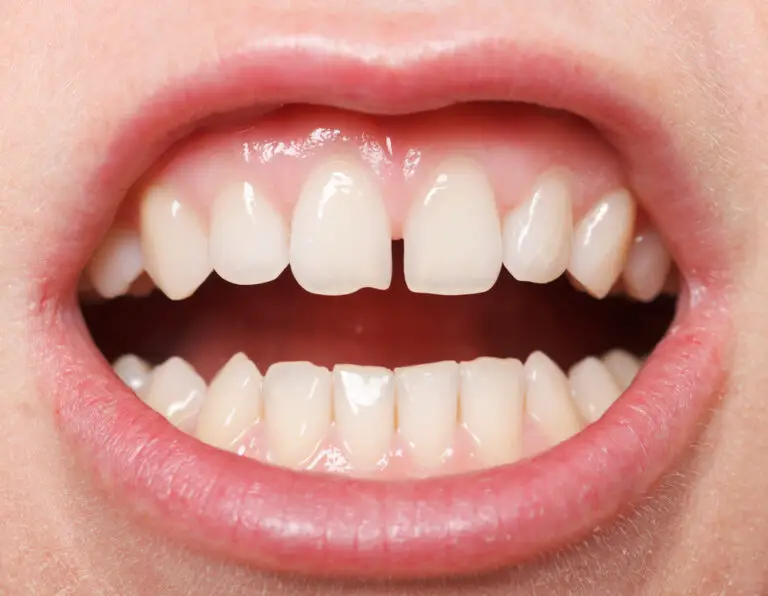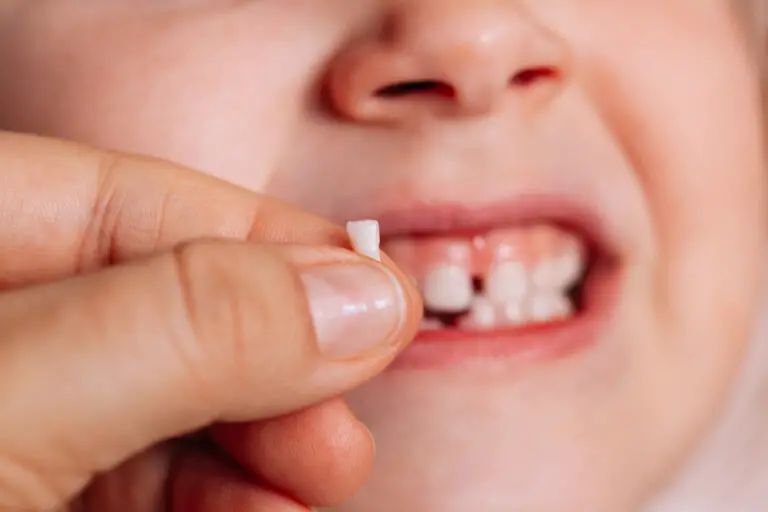If you’re experiencing unbearable pain due to your wisdom teeth, you’re not alone. Wisdom teeth, also known as third molars, are the last set of teeth to emerge in your mouth, usually between the ages of 17 and 25. While not everyone experiences pain or discomfort when their wisdom teeth come in, it’s common for them to cause problems like pain, swelling, and infection.
If you’re dealing with unbearable wisdom tooth pain, there are several things you can do to find relief. The first step is to try over-the-counter pain relievers like ibuprofen or acetaminophen. These medications can help reduce inflammation and alleviate pain. You can also apply ice packs to the affected area for 20 minutes at a time, several times a day, to help reduce swelling and numb the pain.
If the pain persists or becomes unbearable, it’s important to see a dentist as soon as possible. In some cases, wisdom teeth may need to be removed to alleviate pain and prevent further problems. Your dentist can evaluate your situation and recommend the best course of treatment for your specific needs.
Understanding Wisdom Teeth Pain

If you are experiencing pain in your wisdom teeth, it can be a frustrating and uncomfortable experience. However, understanding the causes and symptoms of wisdom teeth pain can help you manage the discomfort and take appropriate action. In this section, we will discuss the causes and symptoms of wisdom teeth pain.
Causes
Wisdom teeth pain is typically caused by the eruption of these teeth into your mouth. Wisdom teeth are your third molars and typically emerge between the ages of 17 and 25. However, not all people develop wisdom teeth, and some may only develop one or two.
When wisdom teeth emerge, they can cause pain and discomfort due to several reasons, including:
- Lack of space in your mouth
- Impacted wisdom teeth
- Infection or inflammation of the gum tissue surrounding the wisdom teeth
Symptoms
The symptoms of wisdom teeth pain can vary depending on the individual and the severity of the condition. Here are some common symptoms of wisdom teeth pain:
- Pain or discomfort in the back of your mouth
- Swelling or tenderness in the gums
- Difficulty opening your mouth
- Difficulty eating or chewing
- Bad breath or a foul taste in your mouth
If you are experiencing any of these symptoms, it is essential to seek professional dental care. Your dentist can evaluate your condition and recommend appropriate treatment options to manage the pain and discomfort.
In the next section, we will discuss some home remedies and treatments for wisdom teeth pain relief.
Immediate Relief Measures
When your wisdom teeth hurt unbearably, the pain can be overwhelming. Luckily, there are some immediate relief measures you can take to alleviate the discomfort. Here are two options you can try:
Over-The-Counter Medications
Over-the-counter pain relievers can be an effective way to ease the pain of wisdom teeth. The following medications are typically recommended:
- Ibuprofen: This nonsteroidal anti-inflammatory drug (NSAID) can help reduce inflammation and relieve pain. The recommended dosage is 200-400 mg every 4-6 hours, up to a maximum of 1,200 mg per day.
- Acetaminophen: This pain reliever can help reduce pain and fever. The recommended dosage is 500-1,000 mg every 4-6 hours, up to a maximum of 4,000 mg per day.
- Aspirin: This NSAID can help reduce inflammation and relieve pain. The recommended dosage is 325-650 mg every 4-6 hours, up to a maximum of 4,000 mg per day.
It’s important to follow the recommended dosages and not exceed the maximum daily limit to avoid potential side effects.
Home Remedies
There are several home remedies that can help ease the pain of wisdom teeth. Here are a few to consider:
- Saltwater rinse: Mix half a teaspoon of salt in eight ounces of warm water and swish it around in your mouth for about 30 seconds before spitting it out. This can help reduce inflammation and provide temporary relief.
- Ice pack: Apply an ice pack to the affected area for 15-20 minutes at a time. This can help numb the area and reduce swelling.
- Clove oil: Apply a small amount of clove oil to a cotton ball and place it on the affected area. Clove oil has natural analgesic properties and can help relieve pain.
While these home remedies can be effective, it’s important to note that they are not a substitute for professional dental care. If your pain persists or worsens, you should consult your dentist for further evaluation and treatment.
When to Seek Medical Help

If you’re experiencing unbearable pain from your wisdom teeth, it’s important to know when to seek medical help. Here are some signs that indicate you should seek medical attention:
Signs of Infection
If you notice any of the following signs, you may have an infection and should seek medical attention immediately:
- Fever
- Swelling in your face or neck
- Redness or pus around the affected tooth
- Foul-smelling breath or taste in your mouth
- Difficulty opening your mouth
An infection can be serious and should be treated as soon as possible to prevent it from spreading.
Prolonged Pain
If you’ve been experiencing pain for several days and it hasn’t improved, it’s time to seek medical attention. Prolonged pain can be a sign of a more serious issue, such as an impacted tooth or a cyst.
Your dentist or oral surgeon will be able to examine your teeth and determine the cause of your pain. They may recommend an X-ray to get a better look at your teeth and determine the best course of action.
Remember, it’s always better to be safe than sorry when it comes to your dental health. If you’re experiencing unbearable pain from your wisdom teeth, don’t hesitate to seek medical attention.
Medical Treatments
If your wisdom teeth are causing unbearable pain, you may need medical treatment to alleviate the discomfort. There are two main types of medical treatments for wisdom tooth pain: dental procedures and prescription medications.
Dental Procedures
Dental procedures are usually the first line of treatment for wisdom tooth pain. Your dentist may recommend one of the following procedures:
- Tooth Extraction: If your wisdom teeth are severely impacted or infected, your dentist may recommend extracting them. This is a surgical procedure that involves removing the entire tooth from the socket. You will be given a local anesthetic to numb the area before the procedure.
- Root Canal: If the pulp inside your wisdom tooth is infected, your dentist may recommend a root canal. This is a procedure that involves removing the infected pulp and filling the tooth with a special material to prevent further infection.
- Crown: If your wisdom tooth is cracked or broken, your dentist may recommend a crown. This is a procedure that involves placing a cap over the damaged tooth to protect it from further damage.
Prescription Medications
If your wisdom tooth pain is severe, your dentist may prescribe medication to help alleviate the discomfort. Some common prescription medications for wisdom tooth pain include:
- Pain Relievers: Your dentist may prescribe pain relievers such as ibuprofen or acetaminophen to help alleviate the pain.
- Antibiotics: If your wisdom tooth is infected, your dentist may prescribe antibiotics to help fight the infection.
- Anti-inflammatory Medications: If your wisdom tooth pain is caused by inflammation, your dentist may prescribe anti-inflammatory medications to help reduce the swelling.
It is important to follow your dentist’s instructions carefully when taking prescription medications. Be sure to take the medication as directed and do not exceed the recommended dosage.
Preventive Measures

If you have not yet experienced wisdom tooth pain, it is important to take preventive measures to avoid such discomfort. Here are some things you can do to prevent wisdom tooth pain:
Regular Dental Check-Ups
Regular dental check-ups are essential for preventing wisdom tooth pain. Your dentist can monitor the growth and development of your wisdom teeth and recommend extraction if necessary. Early detection and treatment can prevent complications and discomfort in the future.
Oral Hygiene Practices
Good oral hygiene practices can also prevent wisdom tooth pain. Brush your teeth twice a day with fluoride toothpaste and floss daily to remove food particles and bacteria from between your teeth. Rinse your mouth with an antiseptic mouthwash to kill bacteria and freshen your breath.
Additionally, avoid sugary and acidic foods and drinks that can erode your tooth enamel and cause cavities. Eat a balanced diet rich in calcium, vitamin D, and other essential nutrients to promote healthy teeth and gums.
By following these preventive measures, you can reduce your risk of developing wisdom tooth pain and maintain good oral health.
Frequently Asked Questions
What are some effective pain relief options for wisdom tooth pain?
If you’re experiencing unbearable wisdom tooth pain, there are several options for pain relief. Over-the-counter pain medications like ibuprofen or acetaminophen can help alleviate pain and reduce inflammation. Applying a cold compress to the affected area can also provide temporary relief. If the pain is severe, your dentist may prescribe a stronger pain medication.
How long does wisdom tooth pain typically last?
The duration of wisdom tooth pain can vary depending on the individual and the severity of the issue. In most cases, the pain should subside within a few days to a week. However, if the pain persists for more than a week or becomes increasingly severe, it’s important to seek professional medical attention.
Can wisdom tooth pain be a sign of a more serious problem?
While wisdom tooth pain is often a result of the teeth growing in, it can also be a sign of a more serious problem, such as an infection or impacted tooth. If you experience any additional symptoms, such as fever, swelling, or difficulty opening your mouth, it’s important to seek professional medical attention.
What are some home remedies for managing wisdom tooth pain?
There are several home remedies that can help manage wisdom tooth pain. Rinsing your mouth with warm salt water can help reduce inflammation and promote healing. Applying a warm compress to the affected area can also help alleviate pain. Additionally, certain essential oils, such as clove oil, have natural analgesic properties and can provide temporary relief.
Is it normal to experience jaw pain with wisdom tooth pain?
Jaw pain is a common symptom of wisdom tooth pain, especially if the teeth are impacted or growing in at an angle. However, if the pain is severe or persistent, it’s important to seek professional medical attention to rule out any underlying issues.
What are some possible complications of wisdom tooth removal?
While wisdom tooth removal is a common procedure, there are some potential complications to be aware of. These can include infection, bleeding, nerve damage, or damage to surrounding teeth or gums. It’s important to follow your dentist’s post-operative instructions carefully to minimize the risk of complications.







